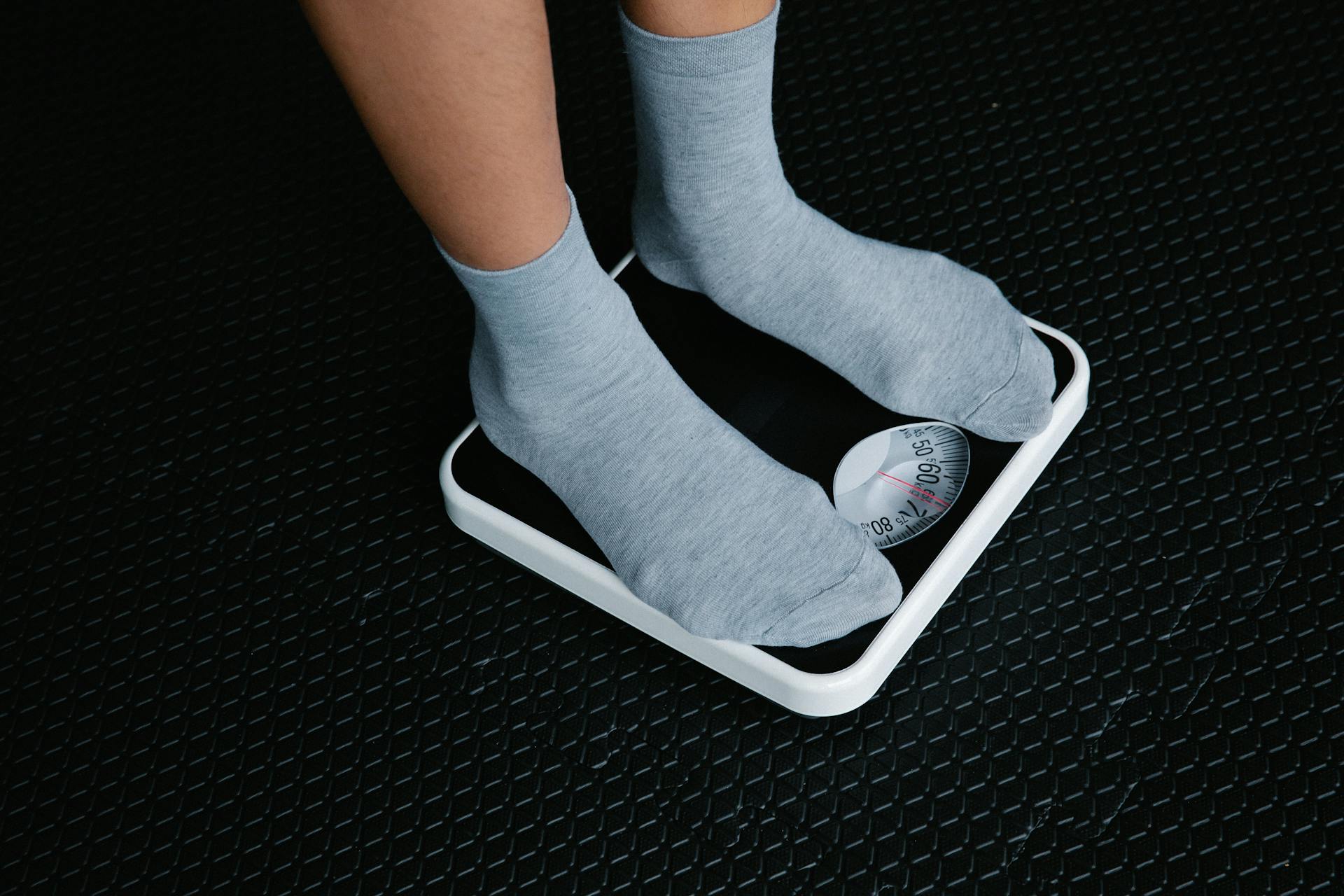Losing weight is a common goal that many of my clients come to me with, but it can be a confusing journey to navigate. As a trainer and nutritionist, I have tried and researched numerous tactics, so I know some of the more efficient and healthy ways to reach your fitness goals.
Media and fads promote various methods, but many of them are not sustainable or can even cause harm. Keep reading to discover what weight loss goals to set for yourself and essential tips for how to lose weight!
What is a healthy weight loss goal?

According to the National Heart, Lung, and Blood Institute, “weight loss should be about 1 to 2 pounds per week.” This steady but gradual rate ensures that you are losing fat rather than muscle or water, minimizing risks to metabolism and overall health.
While this is a great goal, it’s also important to remember that weight loss is highly individual. Factors such as age, gender, genetics, and starting weight all influence the process. Setting realistic goals, like losing 5 to 10% of your current body weight over several months, is more achievable and helps improve health markers like blood pressure, cholesterol, and blood sugar.
If you are unsure of what your end goal should be, consult a healthcare provider or dietitian for personalized guidance.
Navigating weight loss diets

Navigating weight loss diets can be overwhelming, with countless options promising quick results. However, most fad diets should be avoided, as they won’t make you successful in the end. Extreme restrictions like cutting out entire food groups or severely undereating can lead to nutrient deficiencies, muscle loss, and unsustainable eating habits. Diets that focus on rapid weight loss often fail in the long term, leading to weight regain and potential harm to your metabolism.
Luckily, there are still structured diets like the Mediterranean or anti-inflammatory diets that utilize realistic and health-focused approaches. These emphasize whole, nutrient-dense foods such as fruits, vegetables, lean proteins, healthy fats, and whole grains. Both diets are linked to numerous health benefits, including improved heart health, reduced inflammation, and sustainable weight management. Unlike restrictive plans, they encourage balance and flexibility, making them easier to maintain.
Should you consider weight loss medications?

Weight loss medications may be an option for individuals struggling to lose weight despite healthy lifestyle changes, especially if they have obesity or weight-related health conditions like diabetes or high blood pressure. These medications are typically prescribed alongside a balanced diet and regular exercise, as those two factors are still required for weight loss.
However, these medications are not suitable for everyone and can have side effects that make them not worth trying. It’s crucial to consult a healthcare professional to determine if weight loss medications are appropriate for your situation. Remember, these drugs are tools to support and not replace the healthy habits linked to weight loss success. There is also a risk of regaining weight when you come off the medication if you don’t generally live a healthy lifestyle.
Tips for losing weight in a safe manner

Set realistic goals
Start your weight loss journey by setting achievable goals. As we mentioned before, aim to lose one to two pounds per week, which is considered a healthy and sustainable pace. Breaking your overall goal into smaller milestones can help you stay motivated and measure progress without feeling overwhelmed.
Prioritize a balanced diet
A well-rounded diet is crucial for safe weight loss. Focus on whole, nutrient-dense foods like fruits, vegetables, lean proteins, whole grains, and healthy fats. Limit processed foods, sugary drinks, and empty calories.
Instead of restrictive dieting, aim for portion control and mindful eating. Planning meals in advance can help ensure you meet your nutritional needs while staying within your calorie goals.
Incorporate regular exercise
Physical activity is key to both weight loss and overall health. Combine strength training and cardiovascular exercise for optimal results. Strength training builds muscle, which boosts metabolism, while cardio burns calories and improves heart health. Aim for at least 150 minutes of moderate-intensity exercise per week, and find activities you enjoy to make staying active more sustainable.
Stay hydrated and manage sleep
Drinking plenty of water throughout the day supports metabolism and can help curb hunger. Replace sugary beverages with water or unsweetened alternatives.
Sleep is equally important — poor sleep disrupts hormones that regulate appetite and can lead to weight gain. Aim for seven to nine hours of quality sleep per night to keep your body in balance.
Be patient and consistent
Weight loss is a gradual process, and consistency is more important than perfection. Expect fluctuations and focus on developing healthy habits rather than achieving immediate results. Celebrate non-scale victories like increased energy or improved endurance. Avoid extreme diets or overexercising, as these can lead to burnout or health risks. Trust that small, consistent efforts add up over time.
Frequently asked questions

What is the fastest way to reduce weight?
The fastest way to reduce weight involves a calorie deficit through healthy eating and regular exercise. Focus on whole foods, reduce processed foods, and increase water intake. Strength training and cardio can accelerate fat loss. Keep in mind that sustainable habits should be prioritized over extreme methods to avoid health risks and regain weight.
How can I lose 20 pounds in a month?
Losing 20 pounds in a month is not safe or sustainable for most people. Healthy weight loss in a month would typically be four to eight pounds. To make any progress, focus on a balanced diet, calorie deficit, and regular exercise. Extreme methods risk muscle loss, fatigue, and health issues, making them not worth it.
What is the 30/30/30 rule for weight loss?
The 30/30/30 rule for weight loss suggests eating 30 grams of protein per meal, engaging in 30 minutes of exercise daily, and consuming meals within a 30-minute window after waking up. This approach promotes muscle retention, boosts metabolism, and helps control hunger, supporting sustainable weight loss when combined with balanced habits.




